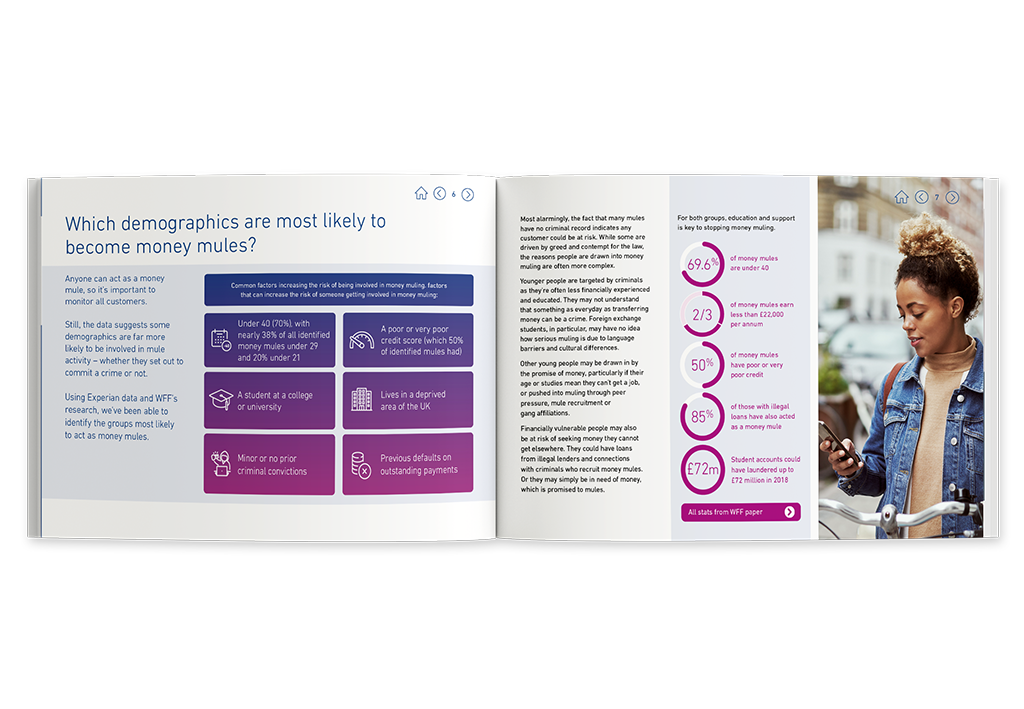What you need to know about Money Mules
Read about key demographics and cautionary tales
Download the report nowWhat do financial organisations need to know about money mules?
Money muling isn’t a new phenomenon, but social media has made it easier than ever for criminals to find willing mules. So what is it – and how can banks and financial services companies prevent their platforms being used by money mules?

In this report, we cover:
The key demographics that are most likely to become money mules
How recruiters target their mules
The consequences of money muling
Real-life stories of former mules
A sneak peek into...
What you need to know about Money Mules
Understanding money mules
Money muling allows organised crime gangs to move the proceeds of crime and is a huge problem, with almost 90% of mule transactions linked to some kind of cybercrime.
Cifas estimates 37,000 bank accounts had mule red flags and Europol identified over 10,700 global mules and 474 recruiters – all just in 2023. Mules are a key part of fraud networks that launder an estimated £10 billion every year in the UK, so stopping them can prevent crimes happening or going unpunished.
Though money laundering isn’t new, digital banking has made it easier for criminals to anonymously move money across the globe via mules. Experian data shows that 42% of first-party current account fraud is only made possible by money mules. The scale of the recruitment problem is also alarming, with 60% of students reporting they have been approached to become a money mule.
Whether they’re part of money laundering or another type of fraud, the role of a money mule is simple. They use their bank account to move money that’s the product of crime.
Mules may transfer money between accounts themselves or sell their bank account to criminals so it can be used solely for illegal transfers. In the latter scenario, they may have no idea mule activity is happening in their account.

Even if the mule didn’t commit or assist with the crime that generated the cash – often the product of drug dealing, payment fraud or human trafficking – it’s considered criminal activity to simply move funds around.
Did you enjoy the read?
Take a look at the full paper
Read our paper to find out how to detect a money mule.










